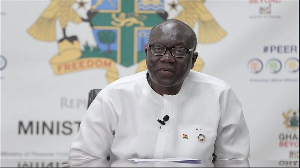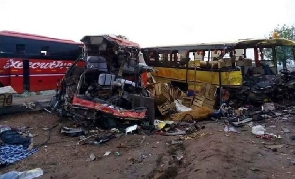The Mortuary Workers Association of Ghana has said members are at high risk of contracting five different types of cancers due to the dangers associated with their work.
Chairman for the Greater Accra branch of the association, Edward Mensah, told Kwame Tutu on Rainbow Radio 87.5FM that, aside the cancers including lung and throat cancers, they are also at risk of permanent blindness.
"The chemicals we use give us five different kinds of cancers, government is aware of this situation. We are also at risk of blindness but nobody is addressing our challenges.’’
He was explaining reasons why the association is planning to lay down their tools on November 20, 2018 in protest against their poor working conditions. Payment of workers he lamented ranges between GHc200-GHc800, an amount he described as insulting.
Some of the issues of concern which boarders on illegalities the workers are complaining about include: Many of the Mortuary Workers are denied perpetual their annual leave in violation of section 20 of Act 651; Most Mortuary Workers work more than the required 8 hours including Saturdays and Sundays in violation of section 33 of Act 651.
They are also claiming that most of the workers have been employed as casual and temporary workers in violation of section 74 and 75 of Act 651, which does not guarantee job security especially in the environment in which they work.
"In terms of remuneration, it is unfortunate to state that Mortuary workers are treated as most unrecognized in the sector and for that matter, least paid on the salary structure of Ministry of Health with no single allowance. Many of the Mortuary facilities are understaffed, no maintenance that compromises on health and safety rules of the sector making the workers unnecessary to suffer in silence. In terms of their Personal Protective Equipment (PPE), some have to struggle to get them to use making the working conditions at some facilities undesirable,’’ their statement read.
Commenting on the health implications the workers may suffer, Dr. Effah Baffour Gyemfi, Library Assistant the University of Medical School said, the work of a mortuary man has been given poor attention.
The job he stated is extremely difficult but it has not been given the appropriate support. The chemical used in preserving the body he lamented should not be inhaled but the mortuary men in Ghana are not given the protective gears to work hence making them exposed to serious health implications.
"If the mortuary man does not work efficiently and preserve dead bodies, the public could be exposed to serious infectious diseases including Cholera.’’ Dr. Effah Baffour Gyemfi said, the employer [Government] should ask if it values the work of the mortuary man? I don’t think their job is valued but they play a major role in the health sector.’’
"If they embark on a strike, it will be a disaster and so I will appeal to the Ministry to quickly address their concerns. It will lead to an unexpected outbreak of infectious diseases,’’ he said.
General News of Wednesday, 14 November 2018
Source: rainbowradioonline.com













